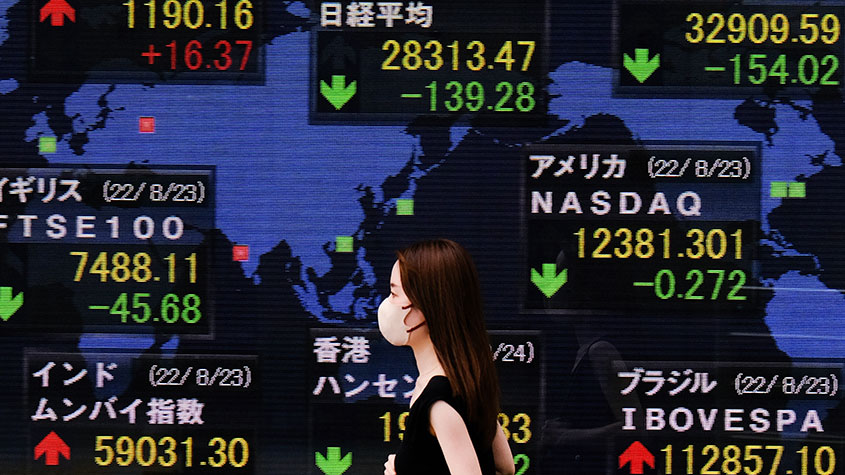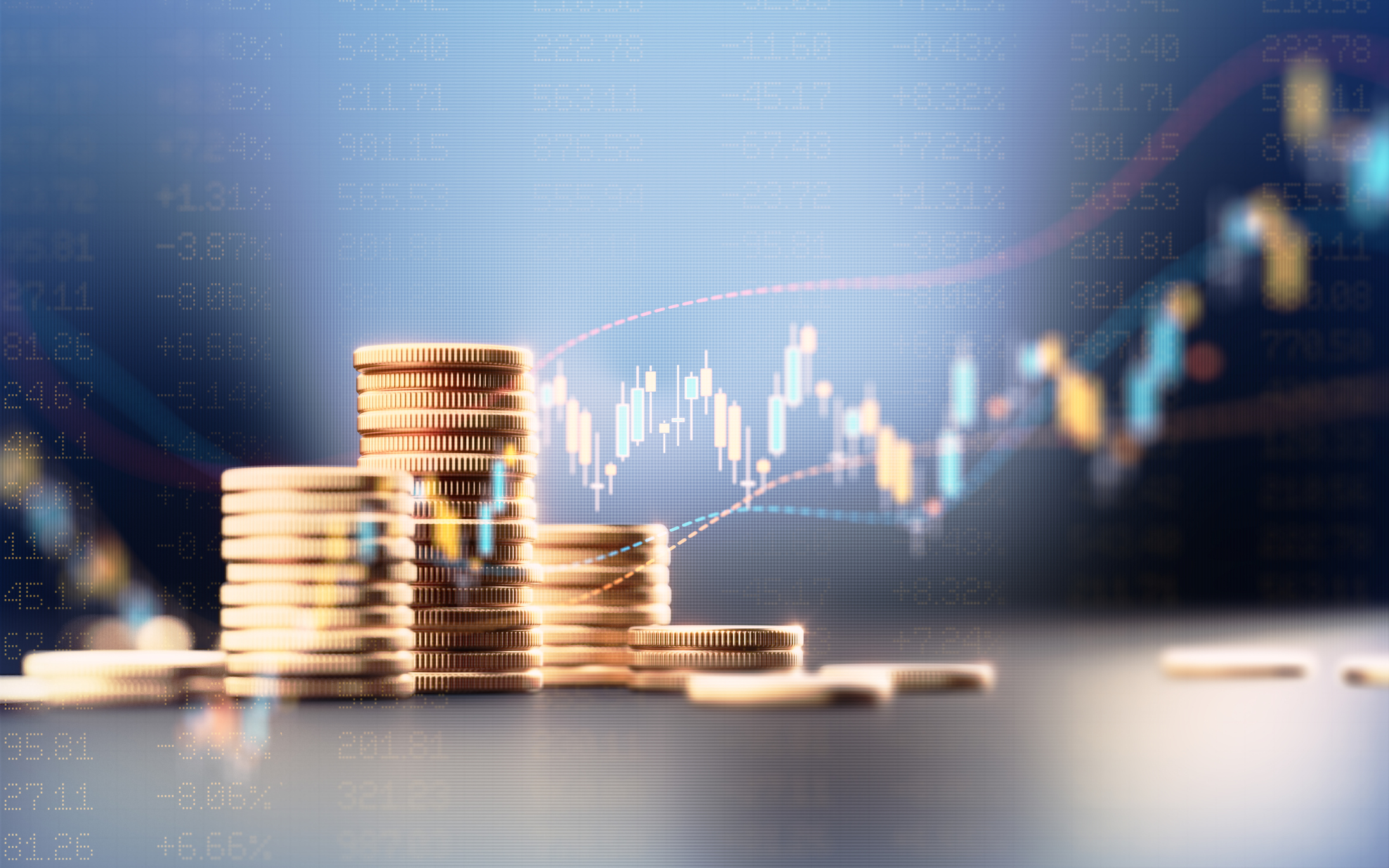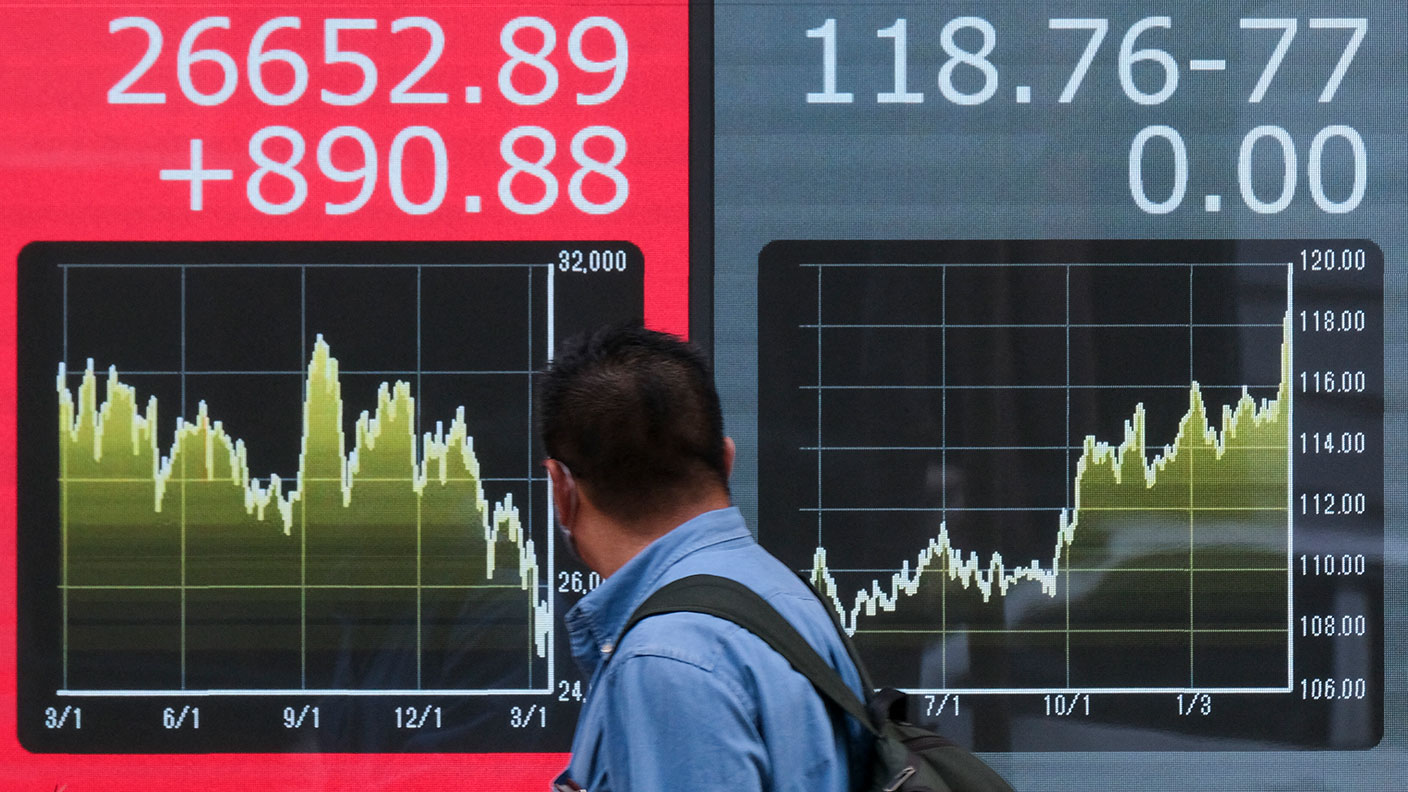The trouble with index-tracking funds
Index-tracking funds are great, cheap alternatives to their overpriced active cousins. But they aren’t flawless, says John Stepek.

Get the latest financial news, insights and expert analysis from our award-winning MoneyWeek team, to help you understand what really matters when it comes to your finances.
You are now subscribed
Your newsletter sign-up was successful
Want to add more newsletters?

Twice daily
MoneyWeek
Get the latest financial news, insights and expert analysis from our award-winning MoneyWeek team, to help you understand what really matters when it comes to your finances.

Four times a week
Look After My Bills
Sign up to our free money-saving newsletter, filled with the latest news and expert advice to help you find the best tips and deals for managing your bills. Start saving today!

We're fans of cheap index-tracking funds. Index trackers simply aim to deliver the return on the underlying market index (less costs), rather than beat it. Yet they still do better than most of their actively managed peers (which do aim to beat the market), because their costs are so much lower. Given that it's so hard to predict which active funds will beat the market, investing in trackers makes a lot of sense to us.
However, they are by no means flawless. A new paper from index specialists Research Affiliates (Buy high and sell low with index funds! by Rob Arnott, Vitali Kalesnik and Lillian Wu) notes that one issue with traditional capitalisation-weighted indices (where the largest stocks by market capitalisation see below get the biggest weighting) is that they "buy high and sell low". Looking at the S&P 500 between 1989 and 2017, the researchers found that when stocks are added to the index (as Twitter recently was, for example), they are "routinely priced at a substantial premium" to the market.
That's partly because, to be promoted, they had to have been doing well. But it's also because once a promotion is announced other investors rush to buy. Similarly, when a stock is demoted there's a rush to sell, and it underperforms as a result. Yet these effects vanish quickly as the stocks "revert to the mean". Promoted stocks tended to underperform over the following 12 months, while demoted ones outperformed. So the index tends to buy stocks just as they peak, and sell others just as they are set to turn around.
MoneyWeek
Subscribe to MoneyWeek today and get your first six magazine issues absolutely FREE

Sign up to Money Morning
Don't miss the latest investment and personal finances news, market analysis, plus money-saving tips with our free twice-daily newsletter
Don't miss the latest investment and personal finances news, market analysis, plus money-saving tips with our free twice-daily newsletter
Then there's the tendency of the biggest stock in a given index to do poorly over time. As Rob Arnott tells Lara Crigger of ETFStream.com, the top stock "in any sector or country typically underperforms" by 5% a year over the subsequent decade. So not only do indices buy high and sell low, there is also the drag from having a large part of the portfolio invested in a poorly performing, overpriced stock.
None of this is to say that you shouldn't use trackers the hidden costs of "buying high and selling low" are still dwarfed by active management fees. However, it shows that there are simple ways in which these funds could be improved if they were prepared to depart from the underlying index. For example, says Arnott, rather than buy or sell as soon as changes are made to the index, "just wait a while for prices to settle down". This would also keep turnover down by avoiding stocks that pop up into the index then rapidly fall out again. And while we wait for such a tracker fund to be launched, it's a useful reminder of two very basic investment lessons that can be applied to any portfolio keep your trading to a minimum, and avoid overly expensive stocks.
I wish I knew what market capitalisation was, but I'm too embarrassed to ask
Market capitalisation, often abbreviated to market cap, is the total value of all outstanding shares in a company. To get the market cap, you simply multiply the number of outstanding shares by their price. For example, there are currently just under 20 billion BP shares in issue, with a price of around 564p each, giving the oil giant a market cap of £112.8bn. The largest listed firm in the world is technology group Apple, which currently has a market cap of nearly $900bn, and is often viewed as a likely candidate for the first company to boast a$1trn market cap.
Companies are frequently divided into "nano cap", "micro cap", "small cap", "medium cap" and "large cap", depending on size, although there is no official definition of the specific parameters of these categories. In the UK, the FTSE 100 is often referred to as the large-cap index, and the FTSE 250 as the mid-cap. Most major stockmarket indices (though not all the Dow Jones and the Nikkei 225 are notable exceptions) are weighted by market cap, which means that changes in the value of the firms with the highest market caps will move the index more than changes in the smaller stocks.
On its own, market cap doesn't tell you very much, other than what it would cost you to buy the entire company's issued equity at current prices. If you divide the market cap by the company's annual earnings, you get the price/earnings (p/e) ratio (which can also be calculated by dividing the share price by earnings per share). You can compare this with the p/e of the sector to get an idea of how expensive or cheap a company is. But this doesn't take into account any outstanding debt, preferred stock, or cash held by the company. So analysts will often use a metric called enterprise value (EV), which does includes these factors. This gives a fuller measure of what a firm is worth and also allows the comparison of companies with different funding structures.
Get the latest financial news, insights and expert analysis from our award-winning MoneyWeek team, to help you understand what really matters when it comes to your finances.

-
 Pension Credit: should the mixed-age couples rule be scrapped?
Pension Credit: should the mixed-age couples rule be scrapped?The mixed-age couples rule was introduced in May 2019 to reserve pension credit for older households but a charity warns it is unfair
-
 Average income tax by area: The parts of the UK paying the most tax mapped
Average income tax by area: The parts of the UK paying the most tax mappedThe UK’s total income tax bill was £240.7 billion 2022/23, but the tax burden is not spread equally around the country. We look at the towns and boroughs that have the highest average income tax bill.
-
 What is an index fund?
What is an index fund?Glossary We outline everything you need to know about index funds, from what they are and how to buy them, to the things to consider before you do so.
-
 Low-cost index funds for simple investing
Low-cost index funds for simple investingTips Index funds are an easy, low-cost way for investors to invest in a sector or asset class. Here’s a selection of the cheapest passive tracker funds on the market right now
-
 A core US fund that should be part of every portfolio
A core US fund that should be part of every portfolioAnalysis The UK market’s recovery might not be here to stay. America offers a compelling alternative, says Max King.
-
 Three healthcare trusts to invest in
Three healthcare trusts to invest inAnalysis The biotech sector is in its biggest bear market in 30 years. But Max King explains why this sector could turn around soon and three healthcare trusts that may be worth investing in.
-
Investment trust portfolio update March 2022: things take a turn for the worse
Analysis Merryn Somerset Webb looks a how MoneyWeek’s model investment trust portfolio has fared as markets swing from growth to value.
-
 Looking for Isa season ideas? Load up on investment trusts
Looking for Isa season ideas? Load up on investment trustsSponsored Investment trusts have had a poor start to the year. But, while there are still plenty of risks, there are plenty of opportunities too. Max King looks at the sectors to buy.
-
 The globally-focused investment trusts to buy for great returns
The globally-focused investment trusts to buy for great returnsTips The bullish market outlook means investors should opt for investment trusts targeting the world’s great companies, says Max King. Here, he picks some of his current favourites.
-
 Two small-cap funds with big potential
Two small-cap funds with big potentialTips Two investment trusts concentrating on US small-cap shares offer excellent long-term value.